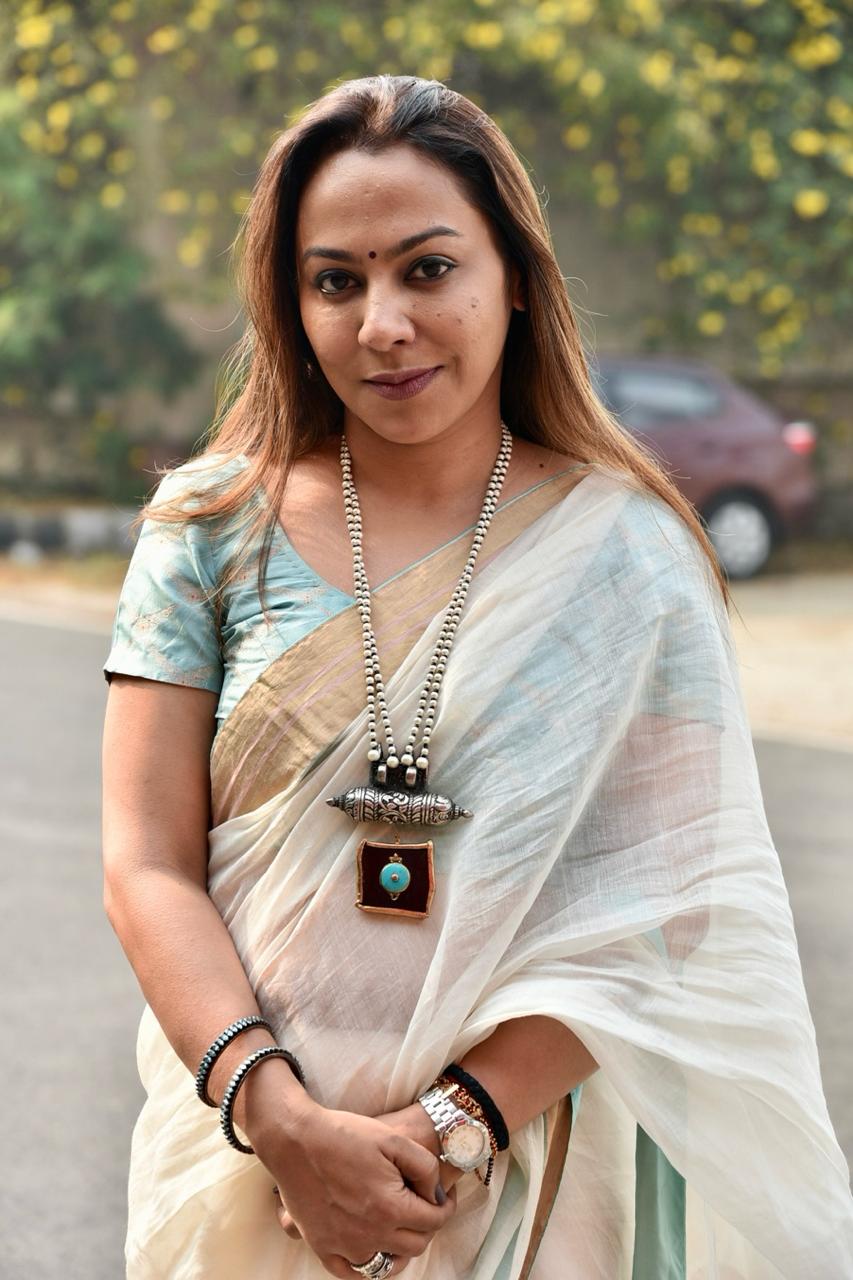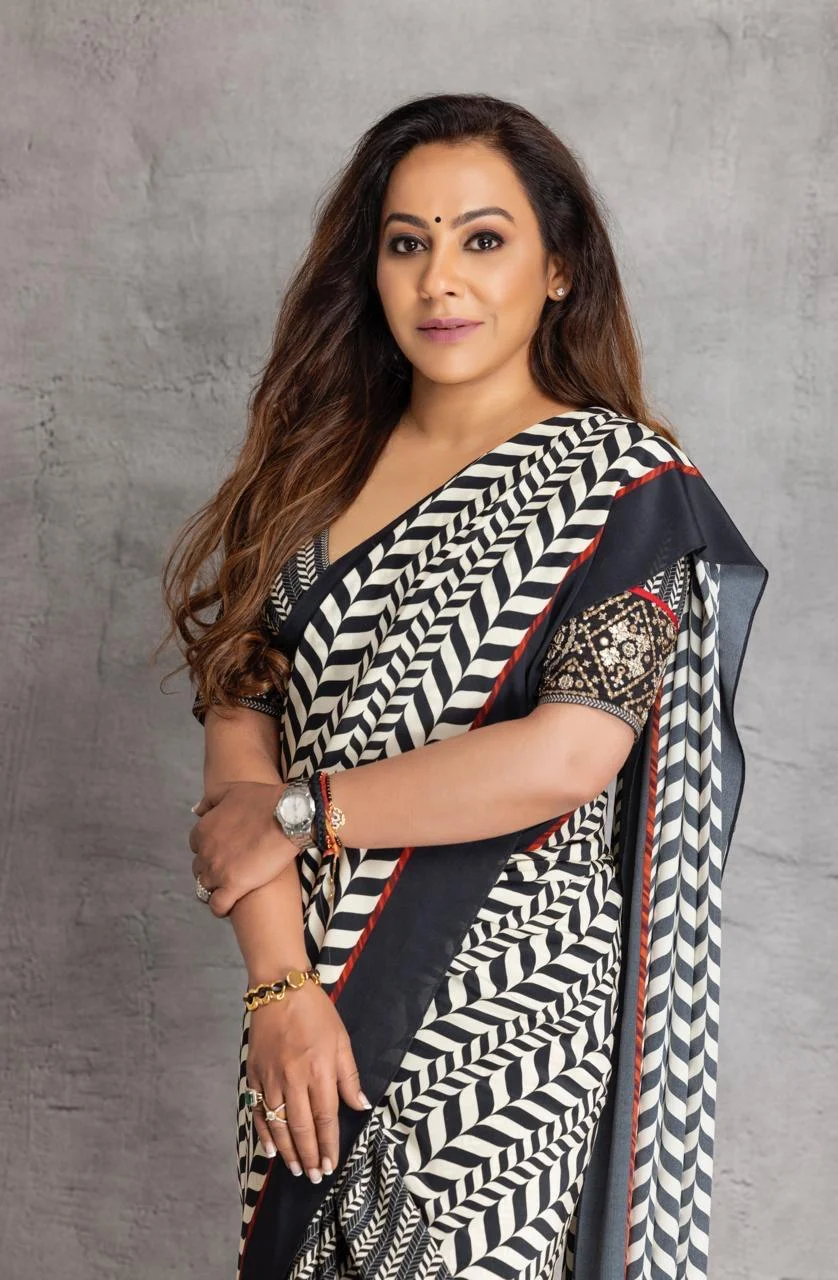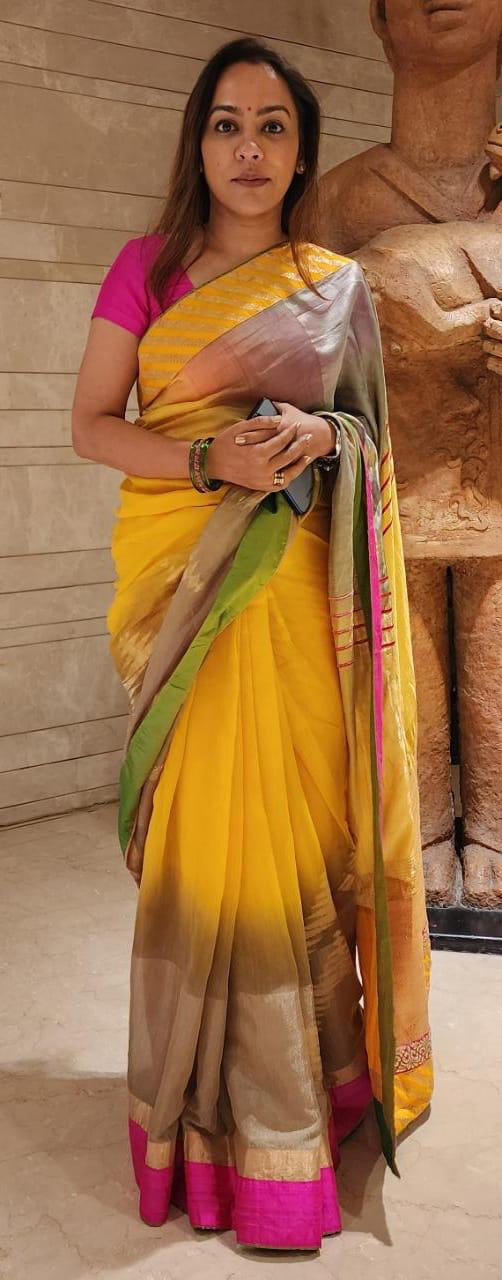 Q1. What inspired you to pursue a career in your field, and how have your experiences shaped your professional identity ?
Q1. What inspired you to pursue a career in your field, and how have your experiences shaped your professional identity ?
My inspiration to pursue a career in my field is deeply rooted in the values instilled in me by my parents, who epitomized selflessness and compassion. Their commitment to serving others, especially the underprivileged, ignited in me a desire to make a positive impact on society. Through various experiences, including my education and marriage to an IPS officer, I’ve further honed my passion for community development and empowerment. These experiences have shaped my professional identity, defining me as a pragmatic, determined individual driven by a vision of creating a better world.
Q2. Have you ever faced challenges in maintaining a healthy balance between your personal life and professional commitments? If so, how did you overcome them ?
Balancing personal life with professional commitments has indeed presented challenges, especially given my involvement in philanthropy and societal development. However, I’ve learned to manage these challenges through effective time management, prioritization, and unwavering support from my family. Maintaining open communication and setting boundaries have also been instrumental in overcoming these hurdles, ensuring that both aspects of my life receive the attention they deserve.

Q3. How do your personal values align with your professional goals, and how does this alignment influence your decision-making ?
My personal values, deeply rooted in compassion, integrity, and empathy, align seamlessly with my professional goals of community development and empowerment. This alignment serves as a guiding force in my decision-making process, ensuring that every action I take is driven by a genuine desire to make a positive impact on society. It reinforces my commitment to ethical conduct and empowers me to pursue initiatives that uphold these values.
Q4. Can you share some highlights of your current projects or work that you find particularly fulfilling or challenging ?
Currently, my work with the Abhinandan Educational and Welfare Society stands out as particularly fulfilling. This initiative, dedicated to empowering disadvantaged communities through education and holistic development, has garnered recognition from esteemed organizations like the Women Economic Forum and the Cancer Association of India. While immensely fulfilling, it also presents challenges, particularly in navigating bureaucratic hurdles and securing resources. However, overcoming these challenges only strengthens my resolve to drive meaningful change.
View this post on Instagram
Q5. What accomplishments in your career do you feel most proud of, and how have they contributed to your professional growth ?
Among my career accomplishments, establishing the Abhinandan Educational and Welfare Society holds a special place. This initiative has not only impacted countless lives but has also contributed significantly to my professional growth. It has provided me with invaluable leadership experience, honed my organizational skills, and deepened my understanding of community development dynamics. Q6. Where do you see yourself professionally in the next five years, and what steps are you taking to work towards that vision ?
Q6. Where do you see yourself professionally in the next five years, and what steps are you taking to work towards that vision ?
In the next five years, I envision further expanding the reach and impact of the Abhinandan Educational and Welfare Society. To achieve this vision, I am actively working towards forging strategic partnerships, securing funding, and implementing innovative programs that address the evolving needs of disadvantaged communities.
“My personal values, deeply rooted in compassion, integrity, and empathy, align seamlessly with my professional goals of community development and empowerment.”
Q7. Are there specific skills or areas of expertise you aim to develop over the next ten years to enhance your life trajectory ?
Over the next ten years, I aim to develop expertise in policy advocacy and community organizing to enhance my ability to effect systemic change. Additionally, I seek to cultivate skills in strategic planning and resource mobilization, essential for scaling up initiatives and driving sustainable development.
Q8. What would you say has been the most crucial aspect to you achieving this level of success ?
The most crucial aspect of my success has been my unwavering commitment to my values and vision. By staying true to my principles of integrity, selflessness, and compassion, I’ve been able to overcome challenges and inspire others to join me in creating a better world.

Q9. How do you recharge and find balance in your personal life, especially during particularly hectic or challenging periods in your career ?
Recharging in my personal life involves spending quality time with my family, pursuing hobbies like jewellery design, and seeking solace in nature. These activities rejuvenate me and provide the necessary balance to navigate hectic or challenging periods in my career.
Q10. How do you foster inclusivity and diversity within your team or organization, while keeping in mind the importance of maintaining structural integrity ?
Fostering inclusivity and diversity within my organization is a priority, achieved through inclusive hiring practices, diversity training, and creating a culture of respect and collaboration. It’s essential to maintain structural integrity by ensuring equitable opportunities for all members while fostering an environment where everyone feels valued and empowered.
“Creating a more supportive environment for women to thrive in positions of power requires systemic changes, including implementing policies that promote gender equality, addressing unconscious biases, and providing equal opportunities for professional advancement.”
Q11. What challenges do you face in balancing professional responsibilities with personal commitments, and how do you address them ?
Balancing professional responsibilities with personal commitments requires careful prioritization, effective time management, and open communication. Setting boundaries and delegating tasks when necessary helps me maintain harmony between my professional and personal life.

Q12. How do you maintain your own professional development while also maintaining your position at the pinnacle of your industry ?
Maintaining my professional development while occupying a prominent position in my industry requires a proactive approach to learning and staying updated on emerging trends and best practices. Continuous education, networking, and mentorship play pivotal roles in this ongoing process.
View this post on Instagram
Q13. What initiatives or projects have been close to your heart or compelled you to take action or raise your voice ?
Initiatives like the Abhinandan Educational and Welfare Society and my advocacy for gender equality have been close to my heart, compelling me to take action and raise awareness on pressing societal issues. These initiatives reflect my commitment to driving positive change and leaving a lasting impact on society.
Q14. Do you feel that you have used your position to advocate for gender equality and support other women in your industry ? If so, when ?
Yes, I firmly believe in using my position to advocate for gender equality and support other women in my industry. Throughout my career, I have actively promoted diversity and inclusion, mentored aspiring women leaders, and championed initiatives aimed at addressing gender disparities.

Q15. In what ways do you strive to be a role model for future generations of women leaders ?
As a role model for future generations of women leaders, I strive to lead by example, demonstrating resilience, integrity, and compassion in everything I do. By sharing my experiences and empowering others, I hope to inspire more women to pursue their passions and break barriers in their respective fields.
 Q16. How can society create a more supportive environment for women to thrive in positions of power or have access to equal opportunities as men ?
Q16. How can society create a more supportive environment for women to thrive in positions of power or have access to equal opportunities as men ?
Creating a more supportive environment for women to thrive in positions of power requires systemic changes, including implementing policies that promote gender equality, addressing unconscious biases, and providing equal opportunities for professional advancement. Additionally, fostering a culture of mentorship and support can help women navigate challenges and succeed in male-dominated industries.





